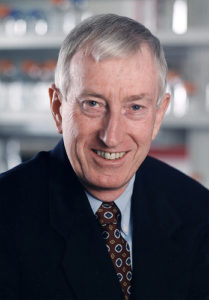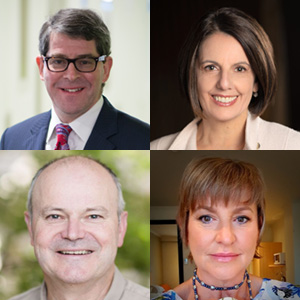RSV Annual General Meeting – Voting Members Only
RSV members are asked to register their intention to attend the Annual General Meeting for 2016, noting a quorum of 50 will be required. If you cannot attend, please nominate your proxy on the form provided by the RSV (earlier circulated with the April newsletter, and also available for download here) to enable business to proceed.
Once the AGM business has concluded, Laureate Professor Peter Doherty will be inducted as a Fellow of the Royal Society of Victoria, and will welcome some of our newest members to the Society. Professor Doherty will present to the Society on the subject of The Challenges Facing Us from 7:00pm. Light refreshments will be served during proceedings. Depending on member numbers at the AGM, we will create a separate registration page for the following lecture, but attendance at the AGM automatically reserves your place – so no need to book twice!
Voting RSV members only at the AGM please (please note student members are ineligible to vote in RSV Council elections or at the AGM, but all are welcome to attend the function and lecture from 7pm).
Please avail yourself of meeting papers ahead of attendance – the 2016 Annual Report, plus the AGM Agenda and minutes of last years’ meeting for confirmation. These will also be emailed to members’ ahead of the meeting.
The Challenges Facing Us
 Professor Peter C Doherty AM
Professor Peter C Doherty AM
Nobel Laureate
Peter Doherty Institute for Infection & Immunity
My professional life has been spent working on infection and immunity, specifically the nature of the “killer” T lymphocyte response. I’ll describe a little of that, outline some basic principles of cell-mediated immunity (including clinical applications in cancer therapy) and discuss where we are with the threat of infectious disease.
When it comes to the long-term risks for humanity, though, I think it is unlikely that the world will end for our species with the “whimper” of a global pandemic. The challenges facing us with respect to anthropogenic climate change, resource depletion, clean water and food availability and overpopulation are much more profound and insidious. The greatest fear is that these enormous stresses could end the “world as we know it” with the “big bang” of nuclear war.
As scientists, engineers and educators with a commitment to evidence-based analysis and reasoning, our job is to identify and describe what is happening in the natural world, to speak out on those issues that require fundamental changes in thought, practice and policy, and, where possible, to develop novel technologies that enable realistic solutions. The Nobel Prize (1996) and being Australian of the Year (1997) provided an opportunity to talk publicly about the role of science in society and to become involved more broadly with those who are thinking seriously about the human future. I will discuss some of that, including the experience of being on the public and international stage.








